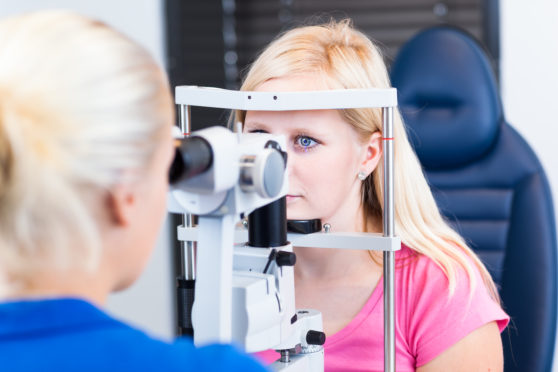A new treatment being pioneered by scientists in Aberdeen has enjoyed success in improving the vision of partially blind patients.
The study has been working with people who have suffered traumatic and sudden sight loss following brain injuries.
More than 300 patients were involved and it was found the programme developed for rehabilitation of blindness after strokes and other injuries improved vision in over 80% of patients.
The research was steered by Professor Arash Sahraie from Aberdeen University’s School of Psychology and carried out in conjunction with Miami University’s Miller School of Medicine.
Professor Sahraie said the NeuroEyeCoach programme had delivered major improvements to people’s lives.
“Blindness after brain injury is common and its effect on patient’s daily life is sudden,” he said.
“Those affected have great difficulty finding their way around and avoiding obstacles and this therapy is designed to help this group of patients.
“We found that following treatment, patients’ ability to detect and avoid obstacles improved.
“They are also seeing things much faster and also state that the therapy improved their activities of daily life.”
The study found that that improvements were not dependent on age, gender, side of blindness, nor the time elapsed since the brain injury.
The team has also found there was no upper age limit to the success of the treatment, as its results showed the treatment improved vision even in 90-year-old patients.
Dr Sahraie added: “Our results show that rehabilitation of vision loss after brain injury is possible and can drastically improve patients’ quality of life.
“A fundamental finding is that no matter how old the patients were, or when they had their vision loss, if they had problems coping with everyday tasks like getting about or finding objects, the therapy would help them to get better.
“So, it is never too late, or patients are never too old to benefit from rehabilitation therapy.
“The large scale of this study has provided answers to important questions.
“We have found that there is no limit to the success of the treatment in terms of age, time since injury or gender.
“This is extremely encouraging and we hope will be of benefit to the tens of thousands of people who live with blindness after brain injury.”
The web-based NeuroEyeCoach program was designed to improve the speed and effectiveness of eye movements to better compensate for the patient’s visual field loss experienced as a result of damage suffered to the brain.
The research team’s work was funded by NovaVision Inc. Findings from the study – the largest of its kind – have been published in the scientific journal Cortex.

